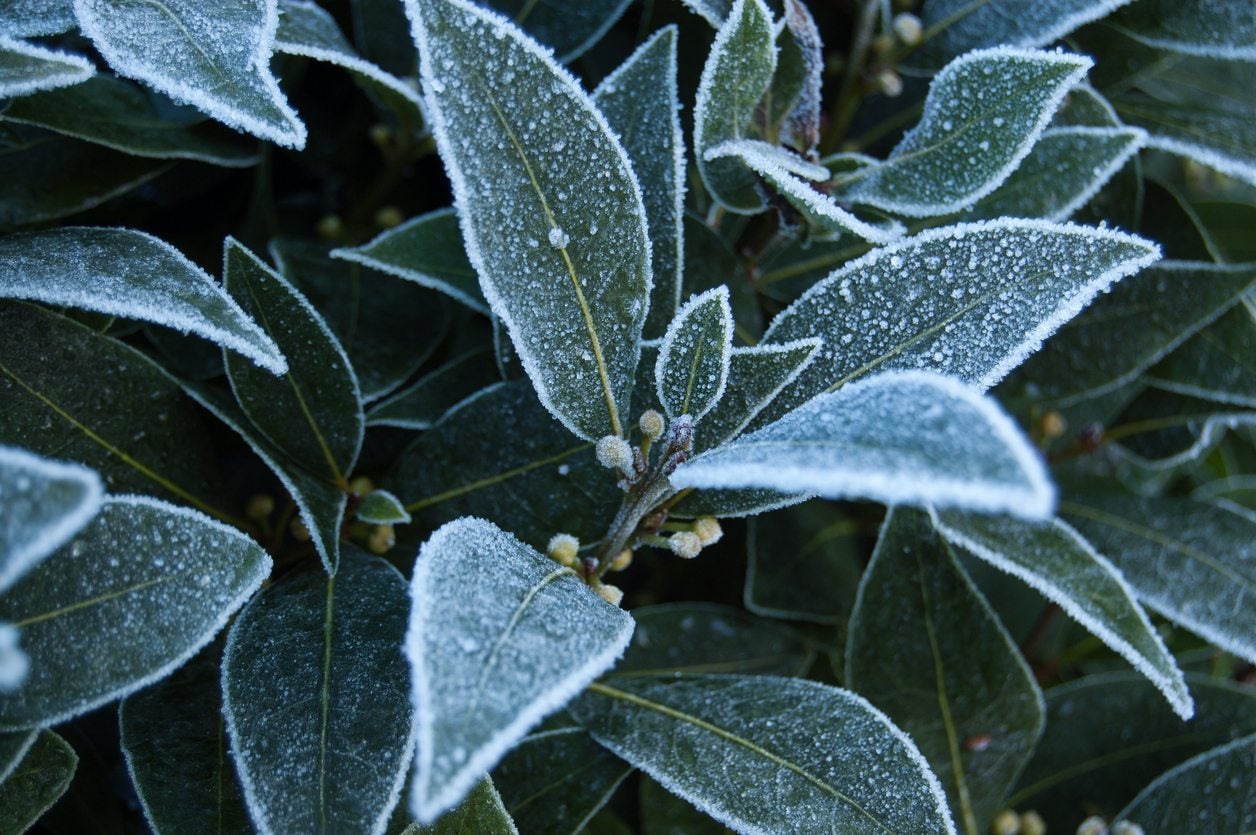Winter Bay Tree Care: What To Do With Bay Trees In Winter


A bay tree is a large, attractive shade tree and is native to the Mediterranean region. This means it does not tolerate cold winters. Properly caring for a bay tree in winter is crucial if you want it to survive to see the next spring and summer.
About Bay Tree Winter Care
Bay trees are also called bay laurel, sweet bay, or true laurel and most people associate them with the culinary herb used so often in soups and stews. Bay trees can grow quite large, but they can also be kept trimmed and shaped, making them good choices for yards and gardens or containers. If you do choose a bay for your yard, know that it grows very slowly. Growing bay can give you a nice ornamental plant that is also fragrant and can be used in the kitchen but be aware that it is not very hardy. Bay trees are only hardy to zones 8 through 10. This means that if you live in colder zones, you can grow bay in a container, but it will need some winter care.
What to Do with Bay Trees in Winter
Overwintering a bay tree is crucial if you live in zone 7 or colder. A simple solution is to grow your bay tree in a container. This way you can bring it indoors for the winter. Bay trees like the sun, so make sure you have a sunny window that you can place it next to for the winter. Bays do best when they can stay outside as much as possible, so keep it outdoors until temperatures drop. If you are in a zone that is borderline, or if you have a particularly cold winter coming, you will need to consider winter bay tree care for those plants that remain outdoors. Some concerns are wind and water. Bay trees don’t like too much wind at any time of year, so if planting outside, find a sheltered spot. As a Mediterranean native, bay does not like too much water. If you have a winter rainy season, be careful of your tree’s roots getting too soggy. Caring for a bay tree in winter means making sure it is warm enough, out of the wind, and relatively dry. It takes some extra steps to grow a bay tree in a colder climate, but it is well worth it for the fragrant leaves and the pretty ornamental element it adds to any garden.
Sign up for the Gardening Know How newsletter today and receive a free copy of our e-book "How to Grow Delicious Tomatoes".

Mary Ellen Ellis has been gardening for over 20 years. With degrees in Chemistry and Biology, Mary Ellen's specialties are flowers, native plants, and herbs.